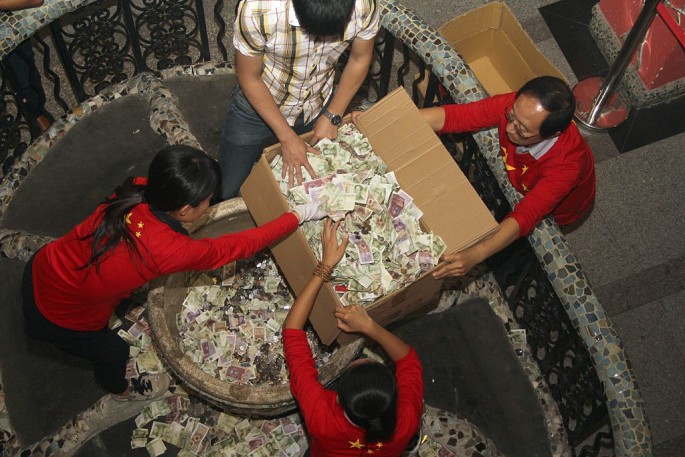Experts note that money laundering methods have become more diversified and complex, leading to increased difficulty in catching the culprits, according to an expert in the issue, China Daily reported.
To this end, the expert stated that legislation to combat money laundering must adapt to the methods of criminal elements.
To ensure national security, experts also voiced the same concern: anti-money laundering tactics should be upgraded quickly.
According to Yu Guangyuan, vice president of the China Association for Fiscal and Tax Law, China's Anti-Money Laundering Law, which was passed in the country's legislature a decade ago, is no longer truly effective in solving the new problems of today's society.
"Some people are now using computers, online finance, and even mobile devices to facilitate money laundering," said Yu.
The problem is further worsened when one considers the fact that a good number of lawyers, accountants and auctioneers take advantage of the system and participate in money laundering. It is significantly harder to trace the money trail when these kinds of individuals take part.
Nearly 40 percent of money laundering is now taking place through mobile payments and online banking, adding a layer of complexity that was previously non-existent.
As a suggestion, Yu urged China's legislature to expand supervision to include nonfinancial institutions such as customs authorities, antique markets and real estate agencies. The goal of authorities should be to prevent these entities from providing a money laundering platform.
"It is also necessary to learn technical skills to analyze and evaluate suspicious transactions from foreign countries," said Yu. "Judicial cooperation on investigations, freezing of accounts, and seizing assets should also be improved with these countries as well."
For Li Yunfei, a legal researcher at Southwest University of Political Science and law, there is still room for improvement with the law.
"It should include ways to face financial problems brought by money laundering in cyberspace, while the amount of money laundering should be specified more clearly," said Li.
The Bank of China's Anti Money Laundering Bureau has announced that it will increase supervision of branches and assist security forces in assessing clues related to money laundering.



























